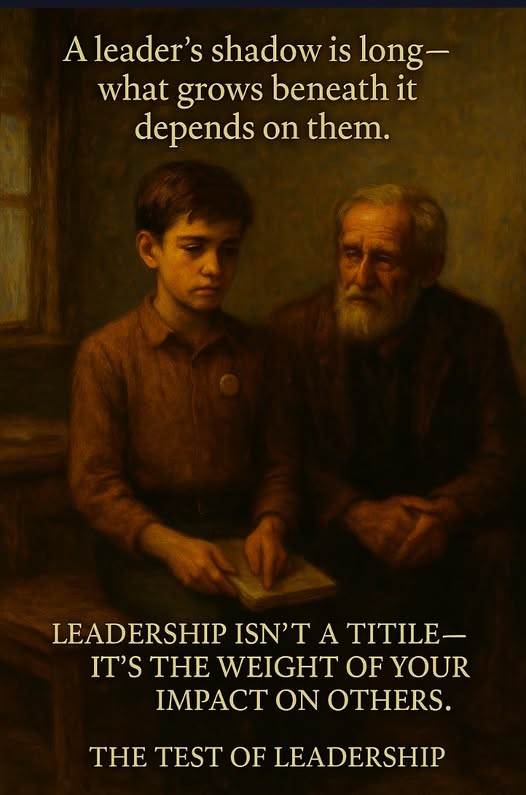
The village school had chosen its new class representative: Emil.
At twelve, Emil had always been quick-witted and observant. Teachers saw in him a natural spark, and classmates followed his lead with ease. But with the badge of leadership pinned to his chest came eyes—watchful, expectant, and sometimes hungry for direction.
“Leadership,” his grandfather once said, “isn’t about walking ahead of others. It’s about being the one others will follow when the path is unclear.”
For a while, Emil took the role seriously. He helped settle small disputes, listened when others spoke, and even stayed behind to clean the board when no one else would.
But leadership carries its own test—one that comes not in grand choices, but in small, quiet moments.
It began with Tomas—loud, confident, and known for swaying the group’s opinions with a smirk and a joke. One day, Tomas asked Emil about a quiet classmate: Leena.
“Why’s she always alone?” he asked. “Bit strange, don’t you think?”
Leena was kind and soft-spoken. She never competed for attention. She wrote poems in the margins of her notebook and often sat beneath the fig tree after class, scribbling while the others played. Emil admired her, silently—but never said so aloud.
“She writes weird stuff in this little notebook,” Emil said, trying to sound casual, yet important. “She once let me read one—something about ‘a sky that cries with dignity.’ I didn’t really get it.”
Tomas laughed. “Sounds like she’s a bit broken.”
Others joined in. The mockery spread like ink on water—tainting what had been pure. And Leena, though she said nothing, began walking home alone, earlier than usual, her head always slightly lowered.
It wasn’t a lie Emil told. It was truth—emptied of care and shared without permission.
Days passed, but something unsettled Emil. It wasn’t the laughter of his friends. It was the silence of Leena. Her absence beneath the fig tree. Her poems no longer peeking from the corners of her notebooks.
At home, Emil stirred his soup in silence. His grandfather, ever observant, watched him.
“What weighs the tongue more than the heart?” he asked gently.
Emil looked up.
“A word spoken in vanity,” his grandfather said, answering his own question. “Leadership is not just what you say when everyone is watching. It’s what you choose not to say when no one will stop you.”
Emil set down his spoon. “I didn’t lie,” he murmured.
“No, you didn’t,” Grandfather said. “But you used truth like a matchstick—struck for no reason but light. And now someone else sits in the smoke.”
That night, Emil wrote a letter. Not for praise. Not to fix what was broken—but to try. He slipped it into Leena’s notebook the next morning.
“I spoke without asking. I shared what was yours, not mine. That wasn’t leadership. It was weakness dressed in approval. I’m sorry.”
Leena never replied. But she returned to the fig tree. And one day, she left a page open on her notebook for him to see.
It read:
“A leader is not the loudest voice, but the quiet one who listens deeply—especially to the voices no one else hears.”

